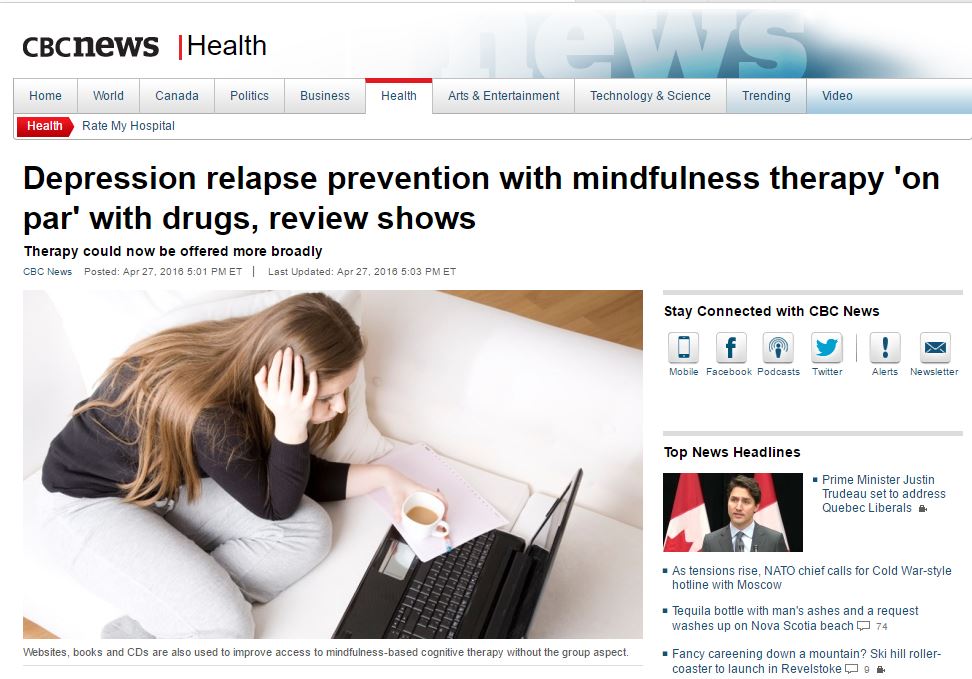A new review finds that mindfulness-based cognitive therapy (MBCT) can help stave off recurring depression as effectively as antidepressants. People suffering from depression who received the mindfulness therapy were 31 percent less likely to suffer a relapse during the next 60 weeks compared with those who did not receive it, Willem Kuyken of the University of Oxford, in England and his co-authors reported in a meta-analysis review in Wednesday’s issue of the journal JAMA Psychiatry.
-
This study says is that non drug methods like mindfulness work as good as drug methods for depression. My experience is that mindfulness works very well for Anxiety and “High Anxiety” (coming off neuroleptics), also.
-
The link to JAMA Psychiatry states, “Page not found.”
The author concludes in the article, “For now, what’s innovative, Segal said, is using antidepressants first and then MCBT to stay well.” I’m quite certain it would be wiser to start with the treatment where, “No one reported side-effects associated with participating in the therapy.” And move to the antidepressant drugs, which are known to cause suicides, violence, mania, etc. next, or never. Especially since going off the antidepressants is also known to result in these “discontinuation” symptoms:
“… flu-like symptoms (nausea, vomiting, diarrhea, headaches, sweating), sleep disturbances (insomnia, nightmares, constant sleepiness). Sensory and movement disturbances have also been reported, including imbalance, tremors, vertigo, dizziness, and electric-shock-like experiences in the brain, often described by sufferers as ‘brain zaps.’ Mood disturbances such as dysphoria, anxiety, or agitation are also reported, as are cognitive disturbances such as confusion and hyperarousal.
“In cases associated with sudden discontinuation of MAO inhibitors, acute psychosis has been observed.[1][2][3] Over fifty symptoms have been reported….”
-
“…..acute psychosis has been observed…” is probably an accurate description.
-















